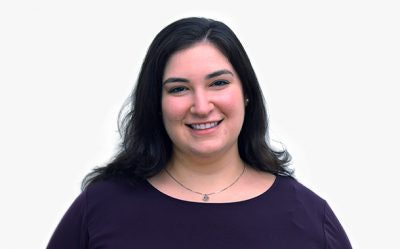A new report from Ithaka S+R has found that while community college provosts want to collect more data about students’ basic needs, factors such as limited resources and infrastructure restrict their ability to do so.
 Melissa Blankstein
Melissa BlanksteinThe report, “Moving the Needle on College Student Basic Needs: National Community College Provost Perspectives,” is part of a larger Holistic Measures of Student Success project.
The survey population for the report included provosts, chief academic officers, vice presidents of academic affairs and those in similar positions. The survey was administered in October 2020.
Ithaka S+R research has shown that students are not just focused on graduation but also look to learn and feel a sense of community in their overall student experience, said Melissa Blankstein, an Ithaka S+R surveys analyst and co-author of the report.
“And what tends to hold them back from achieving all this are really the factors outside of the classroom,” Blankstein said. “If they’re employed, they’re balancing their employment with their academic involvements, as well as the challenges of paying for their basic needs and their courses as well.”
As is the case with many other things, the effects of the COVID-19 pandemic exacerbated students’ needs, Blankstein said, citing increases in unemployment and worsening mental health concerns.
“We’re really seeing that provosts are emphasizing academic and business priorities when determining which data to collect to when they’re assessing institutional success,” Blankstein said. “And so, they’re focused more on more traditional metrics concerned with graduation or retention, course completion.
“And we also do see though that provosts are seeing a strong connection between serving their students more holistically with their basic needs and aligning with their missions, as well as a means to bolster student institutional success for greater performance and funding outcomes.”
However, limited resources and infrastructure have served as obstacles.
“We do also see from the survey that while provosts would like to know more about their students more holistically, knowing how to integrate and better centralize new data points and more holistic variables into existing data collection processes still remains a challenge,” said Blankstein, “especially in the wake of limited resources and infrastructure to incorporate these new, more holistic data points in their already established data collection processes.”
While provosts are in support of data collection, it tends to happens unevenly, said Christine Wolff-Eisenberg, Ithaka S+R manager of surveys and research and a co-author of the report.
“It’s so clear that attitudinally they’re onboard with making sure the data collection happens that facilitates students’ basic needs being met and they see that very much as part of their mission,” Wolff-Eisenberg said. “But when it comes to doing the data collection, it happens somewhat unevenly institution to institution.”
And then, for those institutions that are collecting the data, it tends “to be siloed in student affairs” and “collected often via survey in ways that the data can’t speak to other data about students. It doesn’t get centralized within institutional research like other data do,” Wolff-Eisenberg added.
Another finding of the report is that “social justice imperatives have become increasingly important over the last several years as institutions look to close achievement gaps.”
Dr. Pam Eddinger, president of Bunker Hill Community College in Massachusetts and a member of the report’s advising committee, said that the research resonates with what’s been occurring at Bunker Hill.
“Over the last five to eight years, we have been looking at student success very deeply in the academic areas,” she said, adding that the focus has been on transitioning developmental English and math students into college-level classes.
“That is really where the concentration of student success is,” Eddinger said. “But we know now that’s not really always true. The kind of support that students need in community colleges has another aspect to it, which is the community support, the basic needs support, as basic as things like are you food-insecure and are you housing-insecure? Are you making decisions between buying a textbook and getting your next meal? Are your children eating? Is your family stable if you are student parents?”
Arrman Kyaw can be reached at [email protected]



















